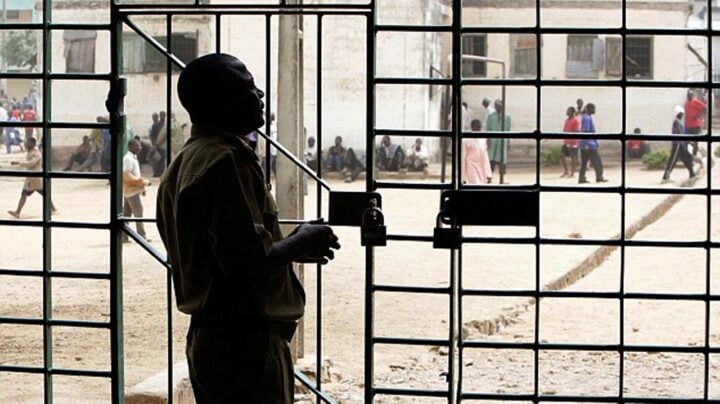When Laws Become Weapons: The Dangerous Trend of Targeted Legislation in Zambia- Thandiwe Ketis Ngoma
When Laws Become Weapons: The Dangerous Trend of Targeted Legislation in Zambia
By Thandiwe Ketis Ngoma
There is no greater threat to democracy than when the law ceases to be a shield for the people and becomes a sword in the hands of the powerful. When legislation is crafted not to ensure justice but to punish individuals or groups, justice becomes selective—and selective justice is no justice at all.
Zambia has seen this before. And today, it is happening again.
From President Frederick Chiluba’s manipulation of the Constitution in the 1990s to President Hakainde Hichilema’s tightening grip on digital freedoms and economic control, a disturbing pattern emerges: the law is being used not to protect citizens, but to protect those in power.
Chiluba’s Legacy: How Power Twisted the Constitution
In 1996, President Frederick Chiluba amended Zambia’s Constitution—not to strengthen democracy, but to eliminate a political opponent. That opponent was Dr. Kenneth Kaunda, Zambia’s founding father. By introducing a clause that required presidential candidates to have both parents born in Zambia, Chiluba surgically disqualified Kaunda, whose parents were Malawian.
This was not leadership. It was political sabotage, dressed in legal language.
Even more disturbing was the introduction of a law making motor vehicle theft a non-bailable offense. Promoted as a tough-on-crime measure, its true purpose was far more sinister: to target businessman Archie Malie, who was rumored to have had an affair with Chiluba’s then-wife, Vera Tembo. Whether the allegations were true or not, the message was unmistakable—laws could be weaponized for personal revenge.
This marked the beginning of a dangerous precedent: using state power to settle scores.
Hichilema’s Turn: The Promise Betrayed
President Hakainde Hichilema rose to power promising reform, transparency, and civil liberties. He labeled the Cyber Security and Cyber Crimes Bill “draconian” and vowed to repeal it.
But once in office, not only did he abandon that promise—he made the law even harsher.
Under the expanded law:
Citizens can be surveilled without court oversight
Vague terms like “cyberbullying” and “false information” are criminalized
Dissenting voices, especially online, are intimidated or silenced
Life sentences can be imposed for loosely defined digital offenses
This is not about digital safety. It is about consolidating power. It is about silencing dissent. It is about shrinking the space for criticism and free thought.
And it doesn’t stop there.
Livestock Law or Livestock Shield?
Another controversial move is the proposal to make livestock theft a non-bailable offense. On the surface, this appears to protect rural farmers. But critics point to a what seems to be a glaring conflict of interest because President Hichilema is one of Zambia’s largest cattle ranchers.
This would then not be impartial policy. It is legislation that could directly safeguard the President’s private business interests.
The Cost of Targeted Legislation
From Chiluba to Hichilema, the lesson is clear: when laws are tailored to serve individuals rather than institutions, the entire nation pays the price. The damage is deep and far-reaching:
1. Erosion of Trust Citizens lose faith in a justice system that enforces laws selectively, based on power rather than principle.
2. Suppression of Freedoms Vague, punitive laws chill free speech, criminalize protest, and punish dissent.
3. Private Gain Over Public Good When leaders legislate to protect their own interests or settle personal vendettas, the people are betrayed.
4. The March Toward Authoritarianism Every abuse of legal power sets the stage for the next. Each unchecked overreach nudges democracy closer to collapse.
Retrogression Masquerading as Reform
President Hichilema promised a “New Dawn,” but what Zambians are witnessing is the recycling of old abuses, clothed in the language of modern governance.
The enhancement of the Cyber Security and Cyber Crimes Act is not a step forward. It is a regression. It does not secure the nation—it silences it. It does not promote accountability—it prevents it. It is not democratic—it is authoritarian.
Conclusion: Laws Must Serve the People, Not the Powerful
When the law becomes a political weapon, democracy begins to die—not in a blaze of violence, but quietly, legally, in full public view.
Zambians must remain vigilant. We must insist that laws are fair, transparent, and just. Laws must be written for everyone, enforced impartially, and free from personal or political motives.
Because once the law is used to target, it stops being law. It becomes oppression in disguise.
And when leaders become lawmakers for themselves, no one is safe.
Not your neighbor. Not your family. Not you.
Let this be our warning—and our rallying cry.







